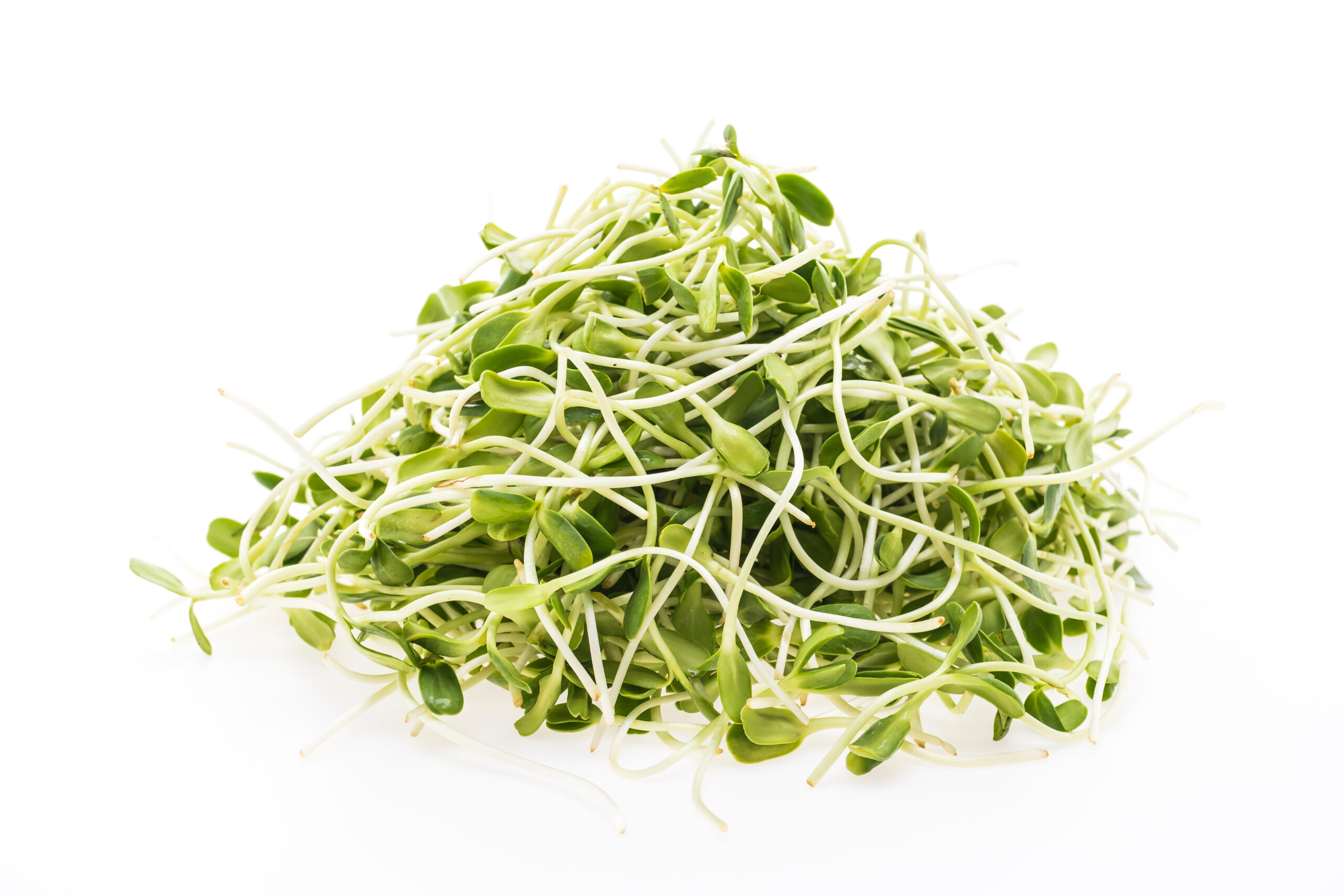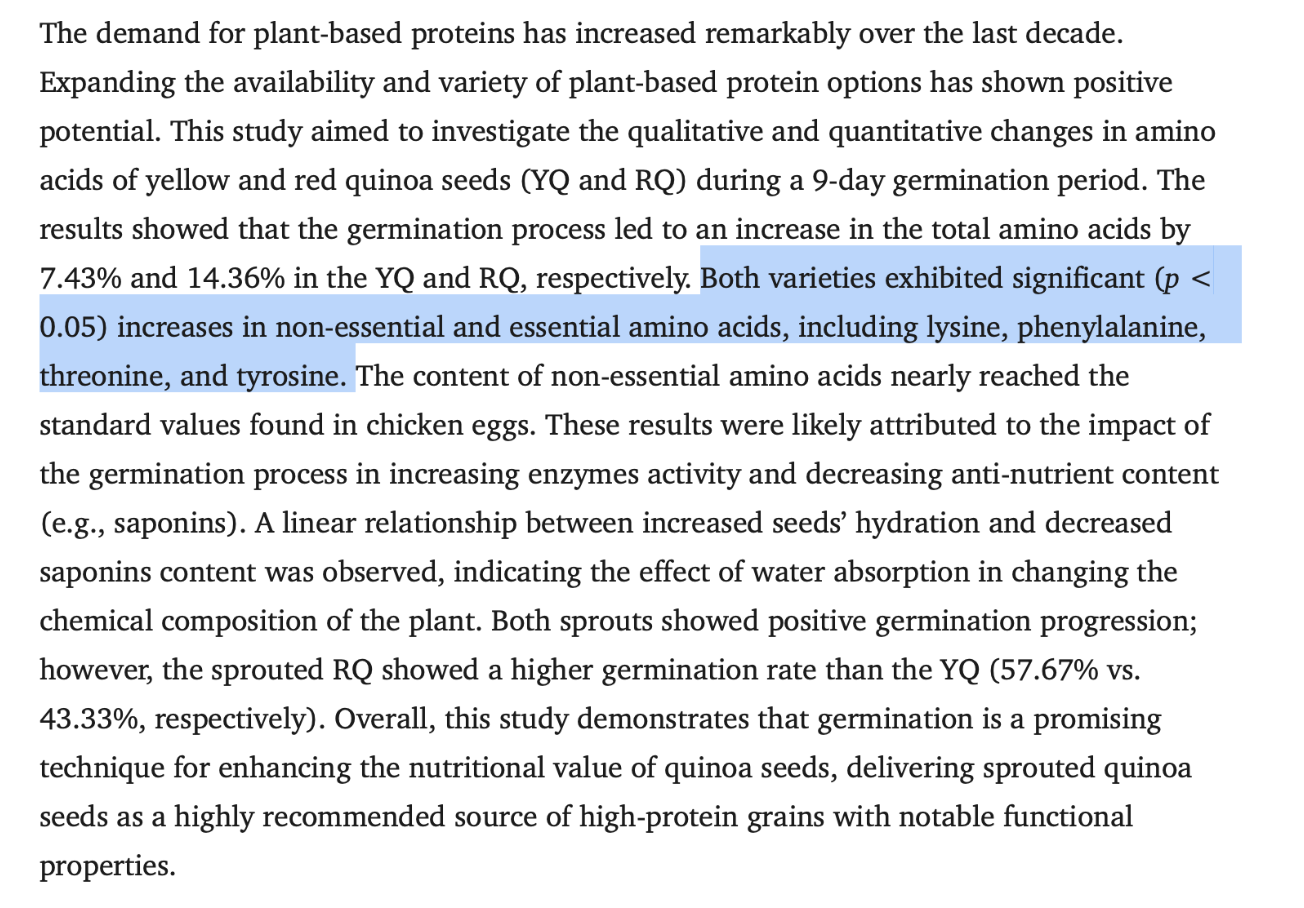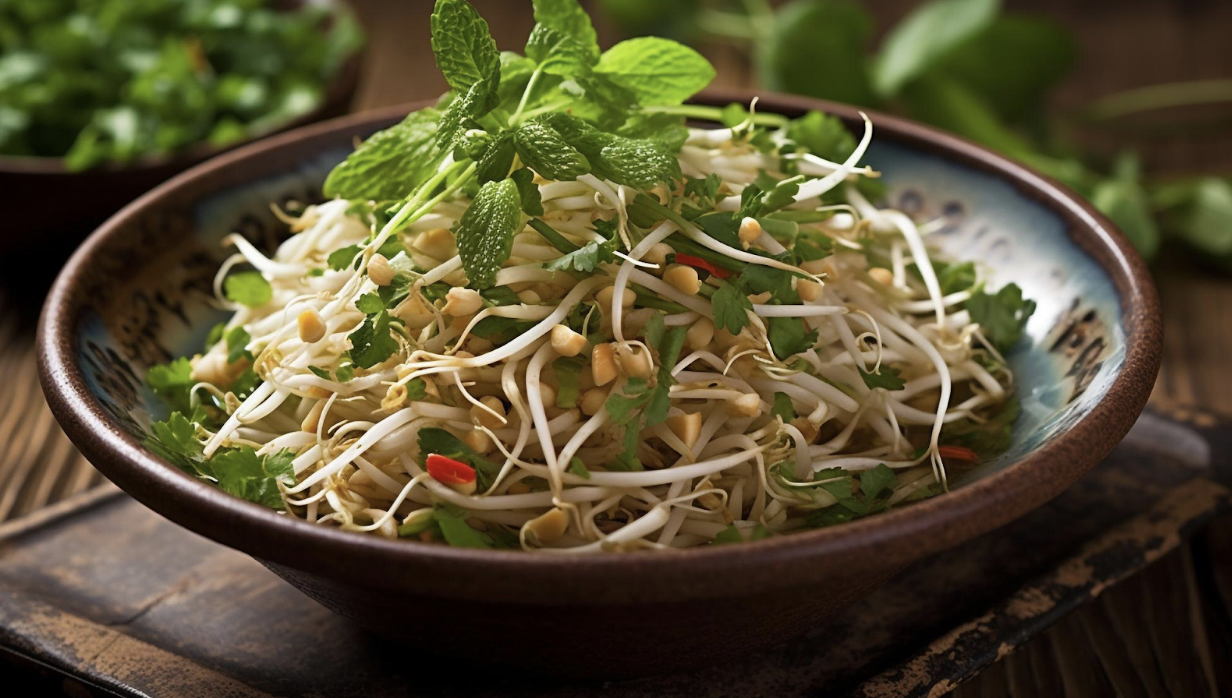Sprouted vs unsprouted grains—does it really make a difference? We’ve been eating grains for generations, assuming they’re fueling us with energy and nutrients.
But what if I told you that the way we consume grains today is far from how nature intended? What if, instead of fully nourishing us, they’re making digestion harder, spiking blood sugar, and holding back their best nutrients?
The truth is, most of us are eating grains in their least nutritious form. But it wasn’t always this way. Our ancestors knew the difference between sprouted vs unsprouted grains and naturally enhanced their nutrition through simple practices like soaking, fermenting, and sprouting.
They soaked rice before cooking, fermented batters for dosas and idlis, and let wheat germinate before grinding it into flour. These weren’t just old-school kitchen habits; they were time-tested methods that made grains richer in protein, easier to digest, and more beneficial for gut health.
Modern food processing has taken grains far from their natural state—stripping away their nutrients, making them harder to digest, and even affecting how our bodies absorb essential minerals.
Maybe it’s time we rethink the grains on our plate and choose the ones that truly nourish us—the way they were meant to be eaten.
Research confirms ample benefits of sprouted grains, and guess what’s the best part?
They’re easy to incorporate into your food habits.
Table of Contents
ToggleWhat Happens When a Grain Sprouts? A Transformation at the Cellular Level
Grains in their natural state are like seeds in hibernation—holding onto their nutrients but making them difficult for our bodies to access. This is because of antinutrients like phytic acid, which bind to essential minerals such as iron, zinc, and magnesium, preventing full absorption.
Sprouting changes that.

When grains are soaked and allowed to germinate, a biochemical transformation begins:
- Enzymes activate, breaking down antinutrients like phytic acid and tannins, making minerals more bioavailable. Sprouting can significantly enhance the absorption of iron, zinc, and calcium—key nutrients for energy, immunity, and bone health.
- Carbohydrates become more digestible. Complex starches convert into simpler sugars, reducing bloating and making grains gentler on the gut. This also lowers the glycemic index, helping maintain steady blood sugar levels rather than causing sharp spikes.
- Proteins increase in quality and quantity. Germination enhances the amino acid profile, especially lysine, which is often deficient in regular grains. This makes sprouted grains a better source of plant-based protein, supporting muscle repair and immune function.
- B vitamins and antioxidants multiply. Sprouting significantly increases the levels of B-complex vitamins like folate, niacin, and B6—nutrients essential for brain function, stress management, and energy metabolism. At the same time, antioxidant levels rise, helping to combat inflammation and oxidative stress.

Therefore, sprouting grains have:
- Up to 200% more folate than unsprouted grains
- Higher amounts of magnesium, zinc, and iron for better metabolic and hormonal balance
- Increased polyphenols and antioxidants, reducing the risk of chronic diseases
By making the switch from unsprouted to sprouted grains, you’re not just getting more nutrition—you’re making your food work smarter for your body.

Sprouted vs Unsprouted Grains: Which One Truly Nourishes You?
While regular grains provide some nutrition, sprouting amplifies their benefits, making them easier to digest and more effective in supporting overall health.
Sprouted Grains vs Regular Grains: A Nutritional Face-Off
| Nutrient | Unsprouted Grains | Sprouted Grains |
| Protein | Moderate | Higher – improved amino acid profile, better for muscle recovery |
| Carbohydrates | Higher starch content | Lower – complex carbs break down, reducing glycemic load |
| B Vitamins | Lower | Increased – more folate, niacin, and B6 for energy and brain health |
| Antioxidants | Limited | Enhanced – more polyphenols and vitamin E, reducing inflammation |
| Digestibility | Harder to break down | Easier – enzyme activation improves gut health and nutrient absorption |
Sprouted Grains: More Than Just Nutrition
Sprouted grains are definitely nutritionally superior to their unsprouted counterparts.
But their benefits go beyond just higher vitamins and minerals—it:
1. Supports Gut Health
A healthy gut is the foundation of overall well-being. Sprouted grains are naturally easier to digest because the sprouting process activates enzymes that break down complex starches and proteins. This means less bloating, gas, and digestive discomfort, allowing your gut to absorb essential nutrients more efficiently.
2. Aids Muscle Recovery
It’s not just about how much protein you consume—it’s about how well your body can utilize it. Sprouted grains enhance their amino acid profile, particularly lysine, an essential amino acid crucial for muscle repair, collagen production, and immune support.
As sprouting improves the bioavailability of proteins, it makes them more effective for muscle recovery and tissue repair.
3. Regulates Blood Sugar
Refined grains often lead to sharp blood sugar spikes, triggering energy crashes and cravings. Sprouted grains have a naturally lower glycemic index, meaning they provide a steady release of glucose into the bloodstream rather than a rapid surge.
4. Enhances Brain Function
Cognitive function depends on key nutrients like B vitamins, iron, and antioxidants, all of which increase significantly in sprouted grains. Folate and niacin, in particular, play a vital role in neurotransmitter function, mental clarity, and stress regulation.
5. Reduces Inflammation
Chronic inflammation is linked to several health conditions, including heart disease, diabetes, and autoimmune disorders. One of the key benefits of sprouted grains is their higher levels of polyphenols and antioxidants, which help combat oxidative stress and reduce inflammation at a cellular level.
A study published in the Molecules confirms that sprouted grains contain elevated amounts of ferulic acid and Vitamin E, both known for their anti-inflammatory effects.

Do you want to know an interesting fact about sprouted grains?
While not completely gluten-free, sprouted grains partially break down gluten, making them easier to digest for those with mild gluten sensitivities. This is why many people who struggle with regular wheat find sprouted wheat products gentler on their stomach.
Disclaimer: While sprouted grains may be easier to digest for some individuals with mild gluten sensitivities, they are not gluten-free. Those with celiac disease or severe gluten intolerance should consult a healthcare professional before consuming sprouted wheat or other gluten-containing grains.
Who Should Be Eating Sprouted Grains? (Spoiler: Almost Everyone, But Especially These Groups!)
The benefits of sprouted grains make them a great choice for everyone, but for some, they’re more than just a healthy option—they’re a game-changer for digestion, energy, and overall well-being. If you’re wondering whether making the switch from unsprouted to sprouted grains is worth it, here’s who stands to gain the most:
1. People Managing Blood Sugar Levels (Diabetics and Those with Insulin Resistance)
Individuals with diabetes or insulin resistance need to stabilize blood sugar. Since sprouted grains have a lower glycemic index, they cause a slower, more controlled release of glucose, preventing energy crashes and cravings.
Sprouting reduces carbohydrate content while increasing fiber and protein, making it an excellent choice for blood sugar control.
2. Athletes & Fitness Enthusiasts (More Protein for Muscle Recovery)
Whether you’re lifting weights, running marathons, or practicing yoga, muscle repair is key to sustained performance. Sprouted grains provide a more complete amino acid profile, helping enhance endurance, strength, and recovery.
A study in the Molecules found that lysine, an amino acid crucial for muscle growth and collagen production, is significantly increased in sprouted grains.

3. People with Digestive Sensitivities (Less Bloating, More Comfort)
If you frequently experience bloating, IBS, or slow digestion, switching to sprouted grains can make a remarkable difference. The sprouting process reduces antinutrients like phytic acid and lectins, which can interfere with digestion and nutrient absorption.
Sprouted grains activate gut-friendly enzymes, making them gentler on the stomach and easier to digest compared to unsprouted grains.
4. Pregnant & Lactating Women (More Folate & B Vitamins)
During pregnancy and breastfeeding, nutrient demands increase significantly. Sprouted grains naturally contain higher levels of folate, B vitamins, and essential minerals, supporting fetal brain development and milk production.
Simple Ways to Add Sprouted Grains to Your Plate (No Overthinking Needed!)
Now the question is—how do you actually add them to your meals without overcomplicating things?
Well, you don’t need a complete nutrition overhaul. A few simple swaps and additions can make a big difference.
1. Sprout Them at Home (It’s Easier Than You Think!)
If you’ve got grains, water, and a little patience, you can sprout at home:
- Soak whole grains (like wheat, millets, quinoa, lentils) in water overnight.
- Drain, rinse, and leave them in a covered sieve or muslin cloth for 1-2 days until little sprouts appear.
- Use them fresh or lightly steam them before adding to meals.
Pro tip: Store extra sprouts in the fridge for up to 3 days and use them as needed.

2. Swap Regular Staples for Sprouted Versions
No time to sprout at home?
No problem.
Just replace refined or unsprouted grains with sprouted alternatives:
- Flour: Use sprouted wheat or sprouted millet flour for rotis, pancakes, or baking.
- Breads & Wraps: Choose sprouted grain breads over refined white or whole wheat options.
- Rice: Swap white rice with sprouted brown rice for better digestion and nutrition.
3. Power Up Your Meals with Sprouted Grains
Sprouted grains aren’t just for traditional dishes—they can be added to almost anything:
- Salads & Bowls: Toss in sprouted lentils, chickpeas, or mung beans for extra protein and fiber.
- Smoothies & Yogurt: Blend sprouted quinoa or add sprouted flaxseeds to add nutrients.
- Soups & Curries: Stir in sprouted legumes for better texture and digestibility.
4. Pick Ready-to-Eat Sprouted Products
If convenience is key but quality matters, opt for sprouted products that are ethically sourced, free from preservatives, and made with real, whole ingredients. Look for:
- Sprouted grain breads, pasta, and cereals
- Sprouted legume-based snacks
- Sprouted flours for baking
Bottom line?
Adding sprouted vs unsprouted grains to your meals doesn’t have to be complicated. Just a few small swaps can go a long way in improving digestion, nutrient absorption, and overall health—without sacrificing taste or convenience.
Delicious Ways to Enjoy Sprouted Grains (Without Compromising on Taste!)
The beauty of sprouted grains is that they can be easily added to your existing recipes. Whether in salads, snacks, or staples, these small tweaks can elevate both taste and nutrition effortlessly.
Try these recipes and experience the power of sprouted grains in every bite!
1. Fresh & Crunchy: Sprouted Salads
Sprouted grains add a natural crunch and earthy flavor to salads, making them more satisfying and nutrient-dense. Perfect for a light yet protein-rich meal.
- Try this: Sprouts Moong Bean Salad – Crunchy Salad Medley
- Another option: Sprouts Salad
2. High-Protein Snacks: Tikkis & Cutlets
Looking for a wholesome, protein-packed snack?
Sprouted grains enhance the amino acid profile, making them a great base for cutlets and tikkis. A perfect tea-time or post-workout snack!
3. Wholesome & Traditional: Sprouted Rotis & Theplas
Sprouted grains can be blended into dough, giving you the benefits of sprouting in everyday staples like rotis and theplas. These fiber-rich alternatives are easy on digestion and help sustain energy levels.
- Try this: Sprouts Thepla
4. Kid-Friendly & Comforting: Sprouted Parathas
If you’re looking for a kid-friendly way to add sprouted grains to their nutrition, parathas are a great choice! Soft, flavorful, and packed with nutrients, they make for an excellent lunchbox or family meal option.
Disclaimer: Individual nutrition needs and restrictions vary, so please consider your specific health conditions, allergies, and preferences before trying these recipes. If you have any concerns about ingredients or their suitability, consult a healthcare professional or nutritionist. Additionally, ensure that sprouted grains are properly prepared and stored to maintain their safety and nutritional benefits.
When Sprouted Grains May Not Be the Best Choice (And What to Do Instead)
While sprouted grains offer incredible benefits—from better digestion to improved nutrient absorption—not everyone may thrive on them. Just as bio-individuality plays a role in all aspects of nutrition, some people may need to moderate or even avoid sprouted grains based on their unique health conditions.
Here’s what you need to know:
1. People with Severe Gluten Sensitivities or Celiac Disease
- Sprouting reduces gluten but doesn’t eliminate it completely. If you have celiac disease or a severe gluten intolerance, even trace amounts can trigger inflammation and digestive distress.
- Instead, opt for naturally gluten-free sprouted grains like quinoa, amaranth, or buckwheat.
2. Those with Kidney Disease or High Oxalates
- Some sprouted grains—like wheat, soybeans, and certain legumes—contain higher levels of oxalates and potassium, which may be problematic for individuals with kidney disease.
- If you’re managing kidney health, consult a nutritionist to choose low-oxalate options like sprouted millet or white rice.
3. People Prone to Digestive Issues Like SIBO or IBS
- Sprouted grains can be easier to digest, but they still contain fermentable short-chain carbohydrates (FODMAPs), which may trigger bloating and discomfort in those with irritable bowel syndrome (IBS) or small intestinal bacterial overgrowth (SIBO).
- If this applies to you, start with small portions and observe how your body responds.
4. Individuals with Autoimmune Conditions on a Strict Grain-Free Foods
- Some autoimmune protocols (like AIP) eliminate grains entirely, even sprouted ones, to reduce inflammation.
- If you’re following an elimination nutritional plan, work with a healthcare professional to slowly reintroduce sprouted, gluten-free grains to see how your body reacts.
5. Those Experiencing Allergies or Sensitivities to Certain Grains
- Even in their sprouted form, grains like wheat, barley, and soy can still be allergenic for some people. If you notice skin reactions, digestive discomfort, or fatigue after consuming sprouted grains, it’s best to eliminate and reintroduce them mindfully.
At the end, listen to your body—it always knows best.
Final Thoughts: Should Sprouted Grains Be a Staple in Your Food Plan?
Food is more than just fuel—it’s information for our bodies. Every bite we take has the power to nourish, manage, and energize us. And when it comes to sprouted vs unsprouted grains, the choice is clear.
This isn’t about following a new health trend; it’s about returning to what nature always intended. Sprouting is one of the oldest food traditions—one that enhances not just nutrition but also the way our bodies absorb and utilize what we eat. It’s a small, effortless shift with a big impact on health.
Disclaimer: This blog is for informational purposes only and is not a substitute for professional medical advice, diagnosis, or treatment. While sprouted grains offer numerous health benefits, individual responses may vary. If you have specific nutritional concerns, allergies, or medical conditions, consult a qualified healthcare provider before making any changes to your nutrition plan. Always choose high-quality, ethically sourced, no-preservatives, and properly sprouted grains to ensure safety and optimal nutrition.
One-size-fits-all wellness? Not here.
Your health is unique, and so is our approach.
Join the Signature Wellness Program that goes beyond food habits and quick fixes—it’s about real, sustainable change.
Your transformation starts now.
Schedule a one-on-one consultation with our experts by calling us at 1800 102 0253 or emailing us at [email protected].
Team Luke
Start Your Wellness Journey
Feeling inspired to take the next step in your wellness journey? Connect with us to explore how our tailored programs can support your health journey. Your transformation is just a conversation away.



